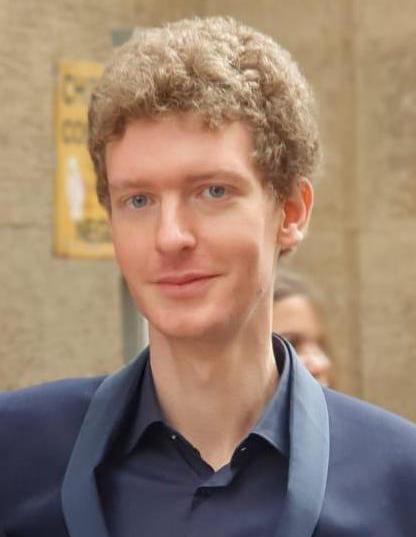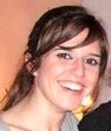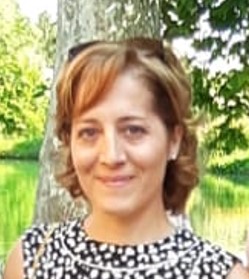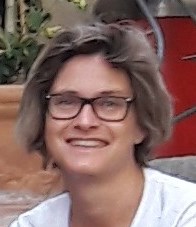Studying at the University of Verona
Here you can find information on the organisational aspects of the Programme, lecture timetables, learning activities and useful contact details for your time at the University, from enrolment to graduation.
Academic calendar
The academic calendar shows the deadlines and scheduled events that are relevant to students, teaching and technical-administrative staff of the University. Public holidays and University closures are also indicated. The academic year normally begins on 1 October each year and ends on 30 September of the following year.
Course calendar
The Academic Calendar sets out the degree programme lecture and exam timetables, as well as the relevant university closure dates..
| Period | From | To |
|---|---|---|
| 1° e 2° semestre (corsi annuali) PROFESSIONI SANITARIE | Oct 3, 2022 | Sep 30, 2023 |
| 1 SEMESTRE PROFESSIONI SANITARIE | Oct 3, 2022 | Dec 23, 2022 |
| 2 SEMESTRE PROFESSIONI SANITARIE | Jan 9, 2023 | Sep 30, 2023 |
| Session | From | To |
|---|---|---|
| FISIO ROV SESSIONE INVERNALE - 3 ANNO | Jan 11, 2023 | Feb 10, 2023 |
| FISIO ROV SESSIONE INVERNALE - 1 ANNO | Jan 11, 2023 | Feb 3, 2023 |
| FISIO ROV SESSIONE INVERNALE - 2 ANNO | Feb 27, 2023 | Mar 17, 2023 |
| FISIO ROV SESSIONE ESTIVA - 2 ANNO | May 15, 2023 | Jun 16, 2023 |
| FISIO ROV SESSIONE ESTIVA - 1 ANNO | Jun 22, 2023 | Jul 28, 2023 |
| FISIO ROV SESSIONE ESTIVA - 3 ANNO | Jun 26, 2023 | Jul 28, 2023 |
| FISIO ROV SESSIONE AUTUNNALE | Sep 4, 2023 | Sep 29, 2023 |
| Session | From | To |
|---|---|---|
| FISIO SESSIONE PRIMAVERILE | Mar 1, 2021 | Apr 30, 2024 |
| FISIO SESSIONE AUTUNNALE | Oct 1, 2023 | Nov 30, 2023 |
| Period | From | To |
|---|---|---|
| Ponte Festa di tutti i Santi | Oct 31, 2022 | Nov 1, 2022 |
| Ponte dell'Immacolata Concezione | Dec 8, 2022 | Dec 9, 2022 |
| Vacanze di Natale | Dec 24, 2022 | Jan 1, 2023 |
| Vacanze di Pasqua | Apr 7, 2023 | Apr 10, 2023 |
| FESTA DELLA LIBERAZIONE | Apr 25, 2023 | Apr 25, 2023 |
| FESTA DEL LAVORO | May 1, 2023 | May 1, 2023 |
| FESTA DELLA REPUBBLICA | Jun 2, 2023 | Jun 2, 2023 |
| Chiusura estiva | Aug 14, 2023 | Aug 19, 2023 |
| Description | Period | From | To |
|---|---|---|---|
| TIR FISIO ROV 3 ANNO - 1 SEM 1 PERIODO | TIR FISIO ROV 3 ANNO - 1 SEM 1 PERIODO | Nov 16, 2022 | Dec 22, 2022 |
| TIR FISIO ROV 2 ANNO - 1 SEM | TIR FISIO ROV 2 ANNO - 1 SEM | Jan 9, 2023 | Feb 22, 2023 |
| TIR FISIO ROV 3 ANNO - 1 SEM 2 PERIODO | TIR FISIO ROV 3 ANNO - 1 SEM 2 PERIODO | Mar 13, 2023 | Apr 21, 2023 |
| TIR FISIO ROV 3 ANNO - 2 SEM | TIR FISIO ROV 3 ANNO - 2 SEM | May 2, 2023 | Jun 16, 2023 |
| TIR FISIO ROV 1 ANNO - 1 SEM | TIR FISIO ROV 1 ANNO - 1 SEM | May 8, 2023 | Jun 14, 2023 |
| TIR FISIO ROV 2 ANNO - 2 SEM | TIR FISIO ROV 2 ANNO - 2 SEM | Jun 19, 2023 | Aug 4, 2023 |
| TIR FISIO ROV 1 ANNO - 2 SEM | TIR FISIO ROV 1 ANNO - 2 SEM | Aug 28, 2023 | Sep 29, 2023 |
Exam calendar
Exam dates and rounds are managed by the relevant Medicine Teaching and Student Services Unit.
To view all the exam sessions available, please use the Exam dashboard on ESSE3.
If you forgot your login details or have problems logging in, please contact the relevant IT HelpDesk, or check the login details recovery web page.
Should you have any doubts or questions, please check the Enrollment FAQs
Academic staff
 camilla.cristoforetti@apss.tn.it
camilla.cristoforetti@apss.tn.it
 0461 515402
0461 515402
 loredana.pancheri@univr.it
loredana.pancheri@univr.it
 daniela.pianezzi@univr.it
daniela.pianezzi@univr.it
 quagliadiego@gmail.com
quagliadiego@gmail.com
 0461904654
0461904654
Study Plan
The Study Plan includes all modules, teaching and learning activities that each student will need to undertake during their time at the University.
Please select your Study Plan based on your enrollment year.
1° Year
| Modules | Credits | TAF | SSD |
|---|
2° Year activated in the A.Y. 2023/2024
| Modules | Credits | TAF | SSD |
|---|
3° Year It will be activated in the A.Y. 2024/2025
| Modules | Credits | TAF | SSD |
|---|
| Modules | Credits | TAF | SSD |
|---|
| Modules | Credits | TAF | SSD |
|---|
| Modules | Credits | TAF | SSD |
|---|
Legend | Type of training activity (TTA)
TAF (Type of Educational Activity) All courses and activities are classified into different types of educational activities, indicated by a letter.
Clinical practice (1st year) (2022/2023)
Teaching code
4S000103
Teacher
Coordinator
Credits
15
Language
Italian
Scientific Disciplinary Sector (SSD)
MED/48 - NURSING IN NEUROPSYCHIATRY AND REHABILITATION
Period
1° e 2° semestre (corsi annuali) PROFESSIONI SANITARIE dal Oct 3, 2022 al Sep 30, 2023.
Learning objectives
The professional internship is a training strategy that primarily involves the student working alongside an experienced professional in specific health care contexts in order to learn the skills expected of a professional role. student to an experienced professional, in specific health contexts, in order to learn the skills required by the professional role. Apprenticeship learning occurs through practical experimentation, integration of theoretical-disciplinary knowledge with professional and organizational practice, contact with health professionals of the specific professional group. In the training of the first year the student is confronted for the first time and intensely with: the clinical environment, the figure of the patient, bearer of needs, suffering, expectations, values, the request to actively enter into the care relationship, a first verification of the motivation that led him to choose this profession and any differences with the "what it means to be a physical therapist" that he had imagined. The professional internship of the first year consists of: two actual experiences in services where physical therapists work, paired with a supervisor, lasting approximately 4-6 weeks each; tutorial sessions and workshops/exercises that prepare for the experience; briefing and debriefing on the experience with the internship mentor-supervisor; Guided study on problems that emerged in the experience; elaboration and writing of didactic tasks of internship. At the end of the first year of the course, the student must be able to: [PREVENTION] implement basic techniques for positioning, movement and transfer of the patient, modulating the intervention in relation to alterations in structure and/or function and/or activity and/or participation, providing for the use of the most appropriate aids, in accordance with the principles of ergonomics and safety for the patient and the operator; apply the principles of hygiene and safety to prevent the occurrence of infections, during the activities required on patients in the training facility attended; with supervisor support, detect risk of potential harm (e.g., from hypomobility, ...) and apply simple prevention strategies (e.g., positioning, mobilization ...); [CARE AND REHABILITATION]. describe and quantify alterations in structure/function/activity/participation, according to ICF, detected through clinical interview, observation, palpation, use of measurement tools as well as validated tests and rating scales; detect vital signs and recognize signs of discomfort (e.g., paleness, sweating, ...) that require immediate intervention by the supervisor; with supervisor support, identify problems of physiotherapy concern and monitor their progress during the observed physiotherapy process; perform under supervision basic joint mobilization and soft tissue mobilization techniques of all segments while adhering to the principles of patient and operator safety; [THERAPEUTIC EDUCATION] know, observe, describe pedagogical strategies adopted by the supervisor for effective patient (caregiver, family) teaching; [COMMUNICATION AND RELATIONSHIP] assume an active attitude at times when the Supervising Physical Therapist relates to the patient, caregiver, and team; to assume a responsible attitude in the professional relationship with the person assisted, respecting his/her experience, using communication techniques of active listening; [PROFESSIONAL RESPONSIBILITY] assume an attitude consistent with the principles of ethics and confidentiality (code of ethics and privacy legislation such as, for example, the prohibition to publish on the network photos and comments of the training environment) in the language and actions performed; act recognizing the limits of their current knowledge and skills, respecting the experience, expertise and roles of others and different ideas, opinions and cultures; demonstrate sensitivity and respect for the patient, their rights, dignity and personal characteristics, including age, gender, ethnicity, religion, culture, language, lifestyle, cognitive and behavioral health status; [MANAGEMENT AND MANAGEMENT] describe, guided by the Supervisor, the host structure, the professional figures present, the type of services provided and the organization of the Service complete the documentation related to the internship activity and deliver it on time, according to the agreed indications. TRAINING AND SELF-TRAINING - Recognize the reference figures for their training path; contribute, guided by the supervising mentor/traineeship guide, to the modulation of one's training objectives and to the evaluation of the achievement of these objectives; use self-assessment of one's training level to maintain one's knowledge at the highest level required for professional practice and acquire/develop self-critical skills; Continuously seize and enhance opportunities for self-study; to deepen knowledge with updated bibliographic references; to use, as needed, the information and computer systems present in the training sites.
Prerequisites and basic notions
- Theoretical contents of the 1st year of studies
- Practical contents relating to the teaching "Professional laboratory 1st year"
- Practical contents relating to the lab.exercises attended in the 1st year
Program
Pursuing the educational objectives, the 1st year student: - Is responsible for his own learning and actively participates in the educational path - Demonstrates relational and collaborative skills with the group of students and the operators of the internship location - Assumes a responsible attitude in the professional relationship - Assists the person in compliance with ethical and deontological principles - Detects vital parameters and identifies alterations (respiratory rate, heart rate and blood pressure) - Performs objective functional examination through observation, inspection, palpation, interview - Identify, with supervision , the physiotherapy problems of the patient - Applies the principles of hygiene for the safety of the patient and the operator - Moves and proposes postures to the person in compliance with the ergonomic principles - Performs segmental mobilization of the limbs and other basic techniques for maintaining ROM and for the development of muscle strength - Carry out, with supervision, telephone and face-to-face triage
Didactic methods
With reference to internship experiences in a clinical environment:
Tutoring 1:1. The Internship Lead Supervisor is a physiotherapist at the site to which the student has been assigned. The university tutor will monitor the experience through tutorial interviews, in agreement with the supervising tutor.
Learning assessment procedures
The final internship exam consists of a simulated clinical situation, in which the training objectives of the 1st year will be evaluated.
Evaluation criteria
Formative assessments in progress and final collegial certification assessment in 30th grade
Criteria for the composition of the final grade
The final grade will be composed of the weighted average of: - formative evaluations of the two experiences in a clinical environment
- evaluation of the required teaching tasks (self-learning plan and didactic medical record)
- formative evaluation of the exam with practical clinical case simulation
Exam language
Italiano
Career prospects
Module/Programme news
News for students
There you will find information, resources and services useful during your time at the University (Student’s exam record, your study plan on ESSE3, Distance Learning courses, university email account, office forms, administrative procedures, etc.). You can log into MyUnivr with your GIA login details: only in this way will you be able to receive notification of all the notices from your teachers and your secretariat via email and soon also via the Univr app.
Graduation
Documents
| Title | Info File |
|---|---|
|
|
pdf, it, 367 KB, 19/02/24 |
|
|
pdf, it, 142 KB, 19/01/24 |
|
|
pdf, it, 862 KB, 19/01/24 |
|
|
pdf, it, 273 KB, 25/03/24 |
Gestione carriere
Orario lezioni
Documents
| Title | Info File |
|---|---|
|
|
pdf, it, 525 KB, 22/09/23 |
|
|
pdf, it, 39 KB, 17/04/24 |
|
|
pdf, it, 33 KB, 17/04/24 |
|
|
pdf, it, 1453 KB, 07/02/24 |
Student login and resources
Attività Seminariali/a scelta dello studente
Attività Seminariali/a scelta dello studente


















